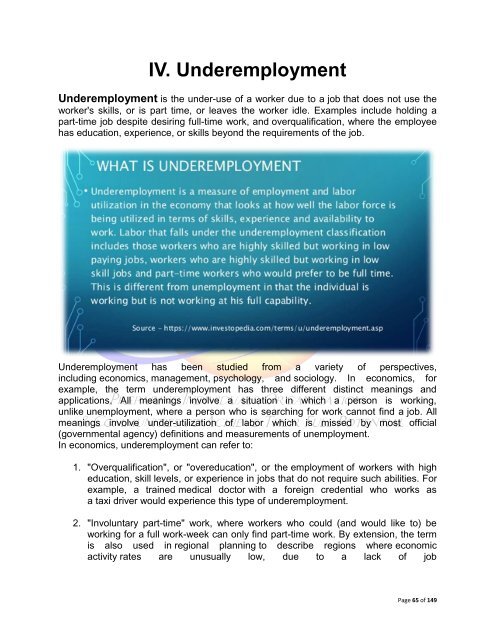Hidden Unemployment
Hidden Unemployment
Hidden Unemployment
Create successful ePaper yourself
Turn your PDF publications into a flip-book with our unique Google optimized e-Paper software.
IV. Underemployment<br />
Underemployment is the under-use of a worker due to a job that does not use the<br />
worker's skills, or is part time, or leaves the worker idle. Examples include holding a<br />
part-time job despite desiring full-time work, and overqualification, where the employee<br />
has education, experience, or skills beyond the requirements of the job.<br />
Underemployment has been studied from a variety of perspectives,<br />
including economics, management, psychology, and sociology. In economics, for<br />
example, the term underemployment has three different distinct meanings and<br />
applications. All meanings involve a situation in which a person is working,<br />
unlike unemployment, where a person who is searching for work cannot find a job. All<br />
meanings involve under-utilization of labor which is missed by most official<br />
(governmental agency) definitions and measurements of unemployment.<br />
In economics, underemployment can refer to:<br />
1. "Overqualification", or "overeducation", or the employment of workers with high<br />
education, skill levels, or experience in jobs that do not require such abilities. For<br />
example, a trained medical doctor with a foreign credential who works as<br />
a taxi driver would experience this type of underemployment.<br />
2. "Involuntary part-time" work, where workers who could (and would like to) be<br />
working for a full work-week can only find part-time work. By extension, the term<br />
is also used in regional planning to describe regions where economic<br />
activity rates are unusually low, due to a lack of job<br />
Page 65 of 149

















